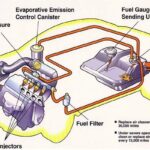
Common Volkswagen Polo Problems and Their Warning Signs (2025 Detailed Guide)

Owning a Volkswagen Polo means driving one of the most beloved compact cars in Europe and beyond. But even with its solid German engineering, the Polo—like any car—has its share of issues over time. In this guide, we’ve compiled an in-depth look at the most common Volkswagen Polo problems, their symptoms, root causes, and practical solutions, helping you stay ahead of costly repairs.
- 1. Engine Problems
- 2. Transmission Issues
- 3. Electrical and Battery Faults
- 4. Suspension and Steering Problems
- 5. Brake System Failures
- 6. Air Conditioning and Climate Control Issues
- 7. Tire and Alignment Problems
- 8. Volkswagen Polo Recall History
- 9. Preventive Maintenance Tips
- 10. Final Thoughts
- 11. FAQs
1. Engine Problems
Oil Leaks
Oil leaks are among the most frequent issues in Volkswagen Polo engines. The most common sources include worn valve cover gaskets, damaged oil pans, or degraded crankshaft seals.
Symptoms include:
- Oil stains beneath the car after parking
- Burning oil smell from the engine bay
- Rapid oil level drop
Solutions:
- Replace leaking gaskets or seals
- Inspect crankcase ventilation
- Clean engine block to identify fresh leaks
Pro Tip: Continuous oil loss without visible leaks may indicate internal gasket failure—seek immediate professional inspection.
Unusual Engine Noises
Knocking, ticking, or humming noises often point to internal wear or lubrication failure.
Potential causes:
- Low oil pressure
- Faulty timing chain tensioner
- Worn piston rings or bearings
Solutions:
- Replace timing components if stretched
- Maintain correct oil viscosity (5W-30 or 5W-40 for most Polos)
- Perform regular oil changes every 10,000 km or 6 months
Check Engine Light & Misfires
Misfires, rough idle, or poor acceleration can trigger the check engine light.
Common triggers include:
- Faulty ignition coils
- Bad spark plugs
- Dirty mass airflow (MAF) sensor
Fix:
- Replace coils and plugs every 50,000–60,000 km
- Clean MAF sensor using specialized cleaner
- Scan ECU for OBD-II codes to pinpoint exact cause
2. Transmission Issues
Hard Gear Shifts or Jerking
Automatic and manual Polo models both suffer from gearshift issues, especially in high-mileage cars.
Symptoms:
- Hard gear changes
- RPM surge between shifts
- Gear delay or hesitation
Causes:
- Low or old transmission fluid
- Worn clutch (manual)
- Faulty mechatronic unit (DSG gearbox)
Solutions:
- Check and replace transmission fluid every 60,000 km
- Recalibrate DSG control unit if shifting irregularities persist
- Replace clutch kit if slipping occurs
Transmission Slipping
Slipping gears can make the car feel like it’s losing power mid-drive.
Possible reasons:
- Worn clutch plates
- Faulty torque converter
- Internal seal leaks
Recommended fix:
You may be interested in reading Volkswagen Polo Not Starting: The Complete Troubleshooting Guide
Volkswagen Polo Not Starting: The Complete Troubleshooting Guide- Perform full transmission service
- Replace clutch pack or solenoid if slipping continues
3. Electrical and Battery Faults
Dashboard Warning Lights
Frequent illumination of the ABS, EPC, or battery lights often signals electrical malfunctions.
Primary causes:
- Weak alternator
- Faulty battery connections
- Sensor failures (ABS or throttle body)
Fixes:
- Test alternator output (should read 13.5–14.5V)
- Clean battery terminals and ground points
- Scan for fault codes using a diagnostic tool
Starter Motor and Battery Failure
If the Polo struggles to start or makes a clicking sound, the problem could lie in the starter circuit.
Common causes:
- Failing starter solenoid
- Corroded battery terminals
- Parasitic power drain overnight
Solution:
- Replace battery if voltage falls below 12.2V after rest
- Inspect starter motor wiring
- Conduct parasitic drain test
4. Suspension and Steering Problems
Clunking or Creaking Over Bumps
A worn suspension setup is a frequent complaint among older Polo models.
Likely culprits:
- Worn shock absorbers
- Damaged control arm bushings
- Ball joint wear
Fix:
- Replace shocks in pairs
- Grease or replace joints
- Perform wheel alignment post-repair
Steering Wheel Vibrations
If you feel vibrations through the steering at high speed, the root may lie in:
- Wheel imbalance
- Bent alloy rims
- Faulty tie rods
Solution:
- Balance all four wheels
- Inspect suspension geometry
- Replace damaged steering components
5. Brake System Failures
Squealing or Grinding Noises
High-pitched squeals usually indicate worn-out brake pads. Grinding, however, signals contact between the rotor and metal backing plate.
Remedy:
- Replace brake pads immediately
- Inspect rotors for scoring or warping
Reduced Braking Power
When the brake pedal feels soft or spongy, hydraulic issues may be present.
Causes include:
- Air in brake lines
- Leaking master cylinder
- Worn brake hoses
Solution:
- Bleed brake lines
- Replace faulty cylinders and seals
6. Air Conditioning and Climate Control Issues
Weak Cooling Performance
Loss of refrigerant due to micro-leaks is a common reason your A/C stops cooling efficiently.
Check for:
- Low refrigerant pressure
- Damaged condenser
- Clogged cabin filter
Solution:
You may be interested in reading Volkswagen Polo Not Starting: The Complete Troubleshooting Guide
Volkswagen Polo Not Starting: The Complete Troubleshooting Guide Volkswagen Polo Key Won’t Turn: Causes, Fixes, and Expert Tips
Volkswagen Polo Key Won’t Turn: Causes, Fixes, and Expert Tips- Recharge A/C gas
- Replace leaking O-rings or compressor if necessary
Compressor Noise or Failure
A noisy compressor is a classic warning of internal wear.
Fix:
- Replace compressor and dryer unit together
- Clean A/C lines to remove debris
7. Tire and Alignment Problems
Uneven Tire Wear
Uneven tread wear indicates a geometry or suspension imbalance.
Root causes:
- Misaligned wheels
- Bent struts or bushings
Solution:
- Perform four-wheel alignment
- Replace worn-out strut mounts
Low Tire Pressure
Consistently low pressure reduces fuel efficiency and increases tire wear.
Fix:
- Check for slow leaks or faulty valve stems
- Maintain recommended tire pressure (typically 32–35 PSI)
8. Volkswagen Polo Recall History
| Recall Year | Issue | Description |
|---|---|---|
| 2019 | Transmission | Loss of power due to gearbox control fault |
| 2020 | Electrical System | Risk of short circuit and fire hazard |
| 2021 | Brake System | Reduced braking efficiency under certain conditions |
Always check your VIN on Volkswagen’s official website to ensure your Polo isn’t part of any outstanding recall.
9. Preventive Maintenance Tips
Keeping a Volkswagen Polo in top condition requires proactive care:
- Change engine oil every 10,000 km or 6 months
- Replace brake fluid every 2 years
- Inspect timing belt or chain at 100,000 km
- Check coolant levels monthly
- Keep software updates current via authorized dealers
10. Final Thoughts
The Volkswagen Polo remains one of the most dependable compact cars on the road, but no vehicle is immune to wear and tear. By recognizing early warning signs—oil leaks, electrical alerts, brake noises—you can prevent minor issues from becoming expensive repairs.
With consistent maintenance and attention to these common problem areas, your Polo can easily surpass 200,000 km of reliable performance.
11. FAQs
1. What is the most common issue in the Volkswagen Polo?
Oil leaks and electrical malfunctions are among the most reported problems.
2. How often should I change my Polo’s transmission fluid?
Every 60,000 km or 3 years, depending on driving conditions.
3. Why does my Polo vibrate while driving?
Wheel imbalance, suspension misalignment, or worn steering components.
4. How can I check if my Polo is part of a recall?
Use your VIN on Volkswagen’s official recall checker page.
5. Are Polo DSG gearboxes reliable?
Yes, but they require regular fluid changes and software updates to prevent shifting issues.
 Volkswagen Polo Not Starting: The Complete Troubleshooting Guide
Volkswagen Polo Not Starting: The Complete Troubleshooting Guide Volkswagen Polo Key Won’t Turn: Causes, Fixes, and Expert Tips
Volkswagen Polo Key Won’t Turn: Causes, Fixes, and Expert Tips Hyundai Tucson Common Problems: Complete Guide to the Most Frequent Issues
Hyundai Tucson Common Problems: Complete Guide to the Most Frequent IssuesIn summary, while the Volkswagen Polo has a reputation for reliability, understanding its common issues and symptoms gives you a major advantage. Regular checks, timely maintenance, and awareness of recalls ensure your Polo stays as dependable as the day it left the factory.
If you want to know other articles similar to Common Volkswagen Polo Problems and Their Warning Signs (2025 Detailed Guide) you can visit the category Common Problems.
Leave a Reply






More content of your interest